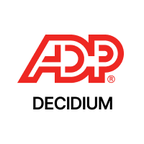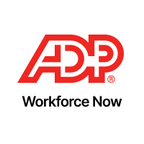Integrate Paychex with your product—along with any other HR & payroll application
Connect your product to all the applications your customers use via Merge's Unified API to close more deals, retain customers, and expand to new markets








Sync Paychex data
Employments
The Employment object is used to represent a job position at a company. If an integration supports historical tracking of employments, it will be reflected in the data. If not, a new Employment object will be created whenever there is a change in job title or pay. The effective_date field should be used to order Employment objects, with the most recent date corresponding to the latest employment record for an employee.
FAQ on integrating with Paychex API
What types of Paychex data can I retrieve through Merge's API?
You can access comprehensive HR data, including employee records, payroll information, benefits details, direct deposit (banking) information, and more. This data is also normalized into Merge's standardized Common Models, allowing you to access and manage Paychex data seamlessly across different HRIS integrations.
Learn more about the Paychex data you can access via Merge.
How does Merge normalize Paychex data fields?
Merge normalizes Paychex data by converting it into standard data models that are consistent across other HRIS platforms supported by Merge. This process allows you to work with Paychex data in a format that's compatible with other HR systems and simplifies multi-platform data handling.
How frequently does Merge sync data from Paychex?
Merge provides flexible sync frequencies. And while they vary based on the Common Model and frequency you set (Highest, High, Standard, and Daily), they’re typically every hour, 3 hours, 6 hours, or 24 hours.
You can also sync data outside of these intervals via Merge’s Force Resync endpoint, and you can sync data in real-time by using Merge’s Automatic Webhooks feature.
Learn more about Merge’s sync frequencies for Paychex.
How can I check when Paychex data was last synced?
You can monitor the last sync status for Paychex data directly within the Merge Dashboard. This feature allows you to view the most recent sync timestamp, ensuring visibility into data freshness and the timing of the last update
What organizations use Merge’s Paychex integration?
A wide range of companies use it, including Opus, Bonusly, Snappy, and Ramp.
You can learn more about the organizations that use Merge’s Paychex integration—among other HRIS integrations—here.
What happens if a Paychex sync is missed or fails?
Merge provides robust observability tools that notify you when a sync fails or encounters errors. The platform automatically retries failed syncs, and you can monitor the sync status and logs to diagnose any issues.
In case the issue lies on your customer’s end, Merge will diagnose the issue and provide the appropriate remediation steps, enabling your customer success team to work with the affected client on resolving the issue quickly.
What HRIS and payroll integrations does Merge support in addition to Paychex?
Merge supports a wide range of HRIS integrations beyond Paychex (70+ HRIS integrations), enabling customers to integrate with various HR and payroll platforms. Here’s a list of other popular HRIS integrations supported by Merge:
- ADP Workforce Now
- BambooHR
- Gusto
- UKG Pro
- Workday
- Namely
- Ceridian Dayforce
- SAP SuccessFactors
- Deel
- Personio
- Rippling
- Justworks
- TriNet
- Insperity
- Oracle HCM
- Square Payroll
You can find the full list here.
New Year's Day - 1/1/2024Memorial Day - 5/27/20244th of July - 7/4/2024Labor Day - 9/2/2024Thanksgiving Day - 11/28/2024Day after Thanksgiving - 11/29/2024Christmas Eve - 12/24/2024Christmas Day - 12/25/2024

Trusted to power integrations at
























Make integrations your competitive advantage
More sales, less code, fewer headaches
Focus on your core product
Stop diverting your engineers to yet another integration and let them get back to work.
Give customer success a break
Manage your simplified integration issues in a single pane. No therapist required.
Stop losing sales due to integrations
Launch integrations in days, not quarters. Your sales team will thank you.
.png)

Integration authentication that feels like magic
Merge seamlessly manages authentication and authorization on behalf of your customers.
Offer account linking and permission controls to your users with Link for a customizable frontend or with Magic Link for URL-based authorization
The toolkit for all your integration needs
We make integrations painless with accessible API design, dead-simple SDKs, and beautiful documentation that we agonize over.
1from merge import Merge
2
3client = Merge(
4 account_token="YOUR_ACCOUNT_TOKEN",
5 api_key="YOUR_API_KEY",
6)
7client.hris.employees.list()import { MergeClient, Merge } from '@mergeapi/merge-node-client';
const merge = new MergeClient({
apiKey: 'YOUR_API_KEY',
accountToken: 'YOUR_ACCOUNT_TOKEN',
});
employee = await merge.hris.employees.list()
ApiClient.instance.authentications.tokenAuth = {
type: 'bearer',
accessToken: 'API_KEY',
};
new EmployeesApi().employeesList('ACCOUNT_TOKEN', {}, (data) => {
console.log(data);
});import (
"context"
"fmt"
merge "github.com/fern-api/merge-go"
mergeclient "github.com/fern-api/merge-go/client"
"github.com/fern-api/merge-go/hris"
)
client := mergeclient.NewClient(
mergeclient.ClientWithAuthApiKey("<YOUR_API_KEY>"),1ApiClient client = Configuration.getDefaultApiClient();
2client.setBasePath('https://api.merge.dev/api/ats/v1');
3ApiKeyAuth tokenAuth = client.getAuthentication('tokenAuth');
4tokenAuth.setApiKey('API_KEY');
5CandidatesApi apiInstance = new CandidatesApi(client);
6apiInstance.candidatesList('ACCOUNT_TOKEN');import com.merge.api.MergeApiClient;
import com.merge.api.resources.hris.employees.requests.EmployeesRetrieveRequest;
import com.merge.api.resources.hris.types.Employee;
MergeApiClient mergeClient = MergeApiClient.builder()
.accountToken("ACCOUNT_TOKEN")
.apiKey("API_KEY")
.build();
Employee employee = mergeClient.hris().employees().list(
EmployeesRetrieveRequest.builder()
.includeRemoteData(true)> {
"id": "0958cbc6-6040-430a-848e-aafacbadf4ae","remote_id": "19202938","employee_number": "2","company": "8d9fd929-436c-4fd4-a48b-0c61f68d6178","first_name": "Dirna","last_name": "Emanuel","display_full_name": "Dirna Emanuel",
"username": "dirnaemanuel",
"groups": [

Case study
%201%20(1).webp)
How Drata increases customer value and spends 80% less time managing integrations
Working with Merge’s Unified API and beautiful React component took less than a sprint to integrate, test, and release.
Supported HRIS platforms
Make integrations your competitive advantage
Stay in touch to learn how Merge can unlock hundreds of integrations in days, not years






























































































